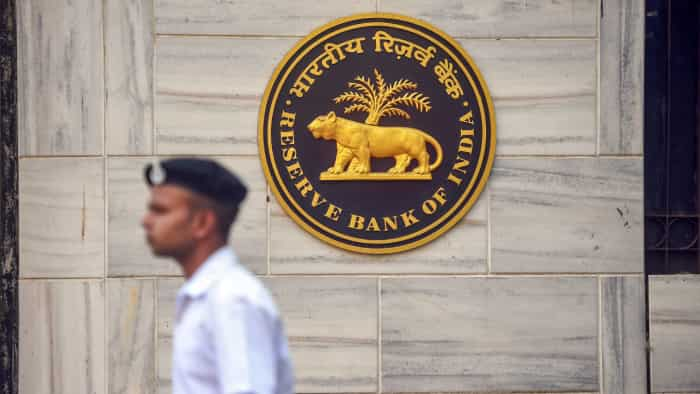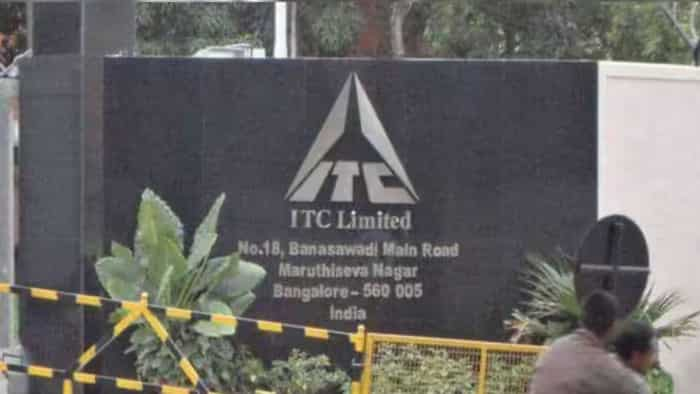Budget 2019 income tax return: Is your salary up to Rs 6.50 lakh? Guess what! You don't have to pay any tax, but you got to do this first

Yes, government has provided income tax relief to salaried employees whose gross salary is up to Rs 5 lakh. Simply put, you do not have to pay any taxes if you earn this much. This means people earning more than Rs 5 lakh will continue to pay taxes like earlier. But interestingly, the interim finance minister Piyush Goyal, also opened a window for those salaried employees who earn up to Rs 6.5 lakh. Guess what! If you do earn up to Rs 6.5 lakh, you also do not have to pay any taxes as well! Yes you read that right! It will ensure you get richer than you thought. However, with every good news there is a cost to pay. You will first have to do something. What you have to do is invest in any government specified tax saving scheme. Before you get worried about the kind of benefits to be derived from these investments, you need to understand, that government’s tax savings schemes are currently, doing much better than other traditional format of investments, in fact people are getting richer some even retiring as a crorepati because of these investments.
Interim FM Piyush Goyal has proposed to double the threshold income tax return exemption (it is in the form of a rebate and does not ring in any changes to the current tax slabs) limit to Rs 5 lakh. Not only this, he has even increased the standard deduction to Rs 50,000 from Rs 40,000.
According to Goyal, this will benefit 3 crore middle-class taxpayers. Make no mistake, it definitely is a massive move for the common man to benefit from.
Coming back to Rs 6.5 lakh income class, Goyal said, “If an individual invests in the specified tax saving schemes of the government, the effective tax-free income limit will be Rs 6.5 lakh a year.”
Currently, there are a host of government specified savings schemes. However, here’s a list of some very popular ones, where you can park your money. To your notice, investment in some of the schemes can be begun from cheapest Rs 500 and Rs 250 per month.
Public Provident Fund (PPF)
One can invest a minimum of Rs 500 and a maximum up to Rs 1.5 lakh/year in a PPFco account. The investment can be done either as a lumpsum at a time in a year, or for a maximum of 12 installments per year. The duration of PPF scheme is 15 years. On request of the subscriber, the account can be extended for 1 year or more blocks of 5 years each. There is tax exemption limit under section 80C of IT Act.
5-Year Bank Fixed Deposits (FDs)
It is amongst of the best tax saving schemes under section 80C of the Income Tax Act, 1961. It is similar to the fixed deposits, having a 5-year lock-in period. The amount invested cannot be withdrawn in between. Higher interest rate compared to the regular FDs is provided. The interest earned at the end of 5 years is fully taxable.
National Savings Certificate (NSC)
This is scheme is issued by the Post Offices, and the government looks after the interest and the principal amount. They are available for five and ten years. There is no limit for investment. Investments are made in the multiples of 1000, 5000 or 10000. Minimum of Rs. 500 is required. The interest rate is fixed every year. Current rates are 8.5% (5years) and 8.8% (10years). The interest is fully taxable. The interest amount is re-invested in the NSC instead of being paid out. The income tax deduction for this investment can be claimed u/s 80C of the Act.
Unit Linked Investment Plan (ULIP)
Section 80C provides the deduction for investment in ULIP also. It is a combination of investment and insurance which is eligible for tax exemption. It covers the risk but no guaranteed returns. Depending upon the scheme the returns can range from 5% to 11%. The maturity revenues earned are tax-free.
#Budget2019 पर सबसे तेज और धमाकेदार कवरेज देखिए #BudgetWithZEE पर | @AnilSinghviZEE https://t.co/dLiybAfvan
— Zee Business (@ZeeBusiness) February 1, 2019
Equity Linked Saving Schemes (ELSS)
The investment is made in equity, aiming for higher returns of about 15% in the long term. There is no guarantee for such returns but the study shows that they are achievable. It offers the lowest lock-in period of just three years. Dividend option can be taken to enjoy regular return during the lock-in period. The returns and capital gains are tax-free. The deduction can be claimed u/s 80C easily. ELSS is best investment plan helping to save tax and offering superior returns.
National Pension Scheme (NPS)
The contributions can be claimed as a deduction under section 80C of the Act. Low-cost investment options are available. The returns are also fluctuating 3% to 10%. It is not such an attractive and recommendable scheme due to its restrictions. The withdrawals are taxable along with maturity amount. The funds can be accessed only after retirement.
Senior Citizens Savings Scheme (SCSS)
Citizens above 60 years of age can make an investment in this scheme.Although, interest is taxable, however, they are mostly covered in the taxable limit. Maximum limit for investment is Rs. 15 lakhs. A lock-in period of 5 years is there. The Government backs up the principal amount of investment. The senior citizens can enjoy the quarterly interest returns. Rate of interest is defined by Ministry of Finance from time to time. The deduction is allowable under section 80C.
If you thought, the joy ends there will you are wrong. Goyal also hinted that, these tax-limit can be increased further up with additional avenues like NPS, medical insurance and home loan interest payment.
What has happened is, even if persons having gross income up to Rs. 6.50 lakhs may not be required to pay any income tax if they make investments in provident funds, specified savings, insurance etc.
In fact, the FM adds, that with additional deductions such as interest on home loan up to Rs.2 lakh, interest on education loans, National Pension Scheme contributions, medical insurance, medical expenditure on senior citizens etc, persons having even higher income will not have to pay any tax.
This will provide tax benefit of Rs 18,500 crore to an estimated 3 crore middle class taxpayers comprising self employed, small business, small traders, salary earners, pensioners and senior citizens.
Hence, why not invest in the above mentioned schemes and become rich and still not pay taxes? Isn’t this like icing on the cake for life! Only a taxpayer can understand the real joy for having such benefits!
Get Latest Business News, Stock Market Updates and Videos; Check your tax outgo through Income Tax Calculator and save money through our Personal Finance coverage. Check Business Breaking News Live on Zee Business Twitter and Facebook. Subscribe on YouTube.
RECOMMENDED STORIES

RBI Rule: New system for online money transfers to be implemented from April 1, 2025; here's all you need to know

Rules of 72, 114, 144 & 8:4:3: How long will it take for your Rs 50 lakh investment to become Rs 1 crore?

Top 7 SBI mutual funds with highest SIP returns in 15 years: Rs 7,777 monthly investment in No. 1 scheme has zoomed to Rs 97,64,660
05:23 PM IST










 Social Stock Exchange: What is it? Will it benefit social enterprises in India?
Social Stock Exchange: What is it? Will it benefit social enterprises in India? Housing for all by 2022: Outlook positive for affordable housing in the next 3 years
Housing for all by 2022: Outlook positive for affordable housing in the next 3 years Hit by massive trouble, NBFC sector gets a big boost; here is how
Hit by massive trouble, NBFC sector gets a big boost; here is how Investment tips: These 10 stocks can help your wealth grow in July 2019
Investment tips: These 10 stocks can help your wealth grow in July 2019  Sensex crash! Rs 5.61 lakh crore of investor wealth wiped out in 2 days - 8 reasons why
Sensex crash! Rs 5.61 lakh crore of investor wealth wiped out in 2 days - 8 reasons why